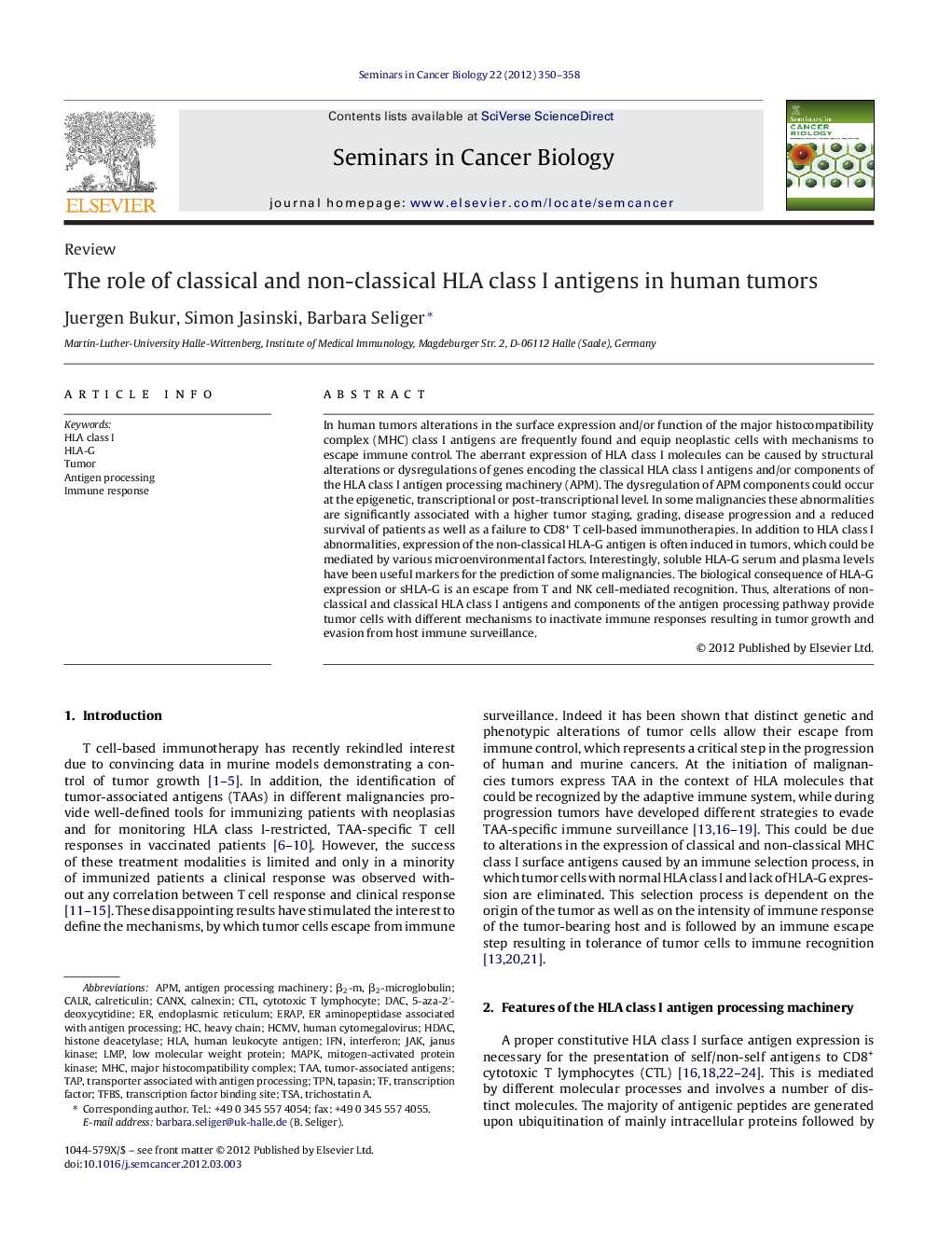| Article ID | Journal | Published Year | Pages | File Type |
|---|---|---|---|---|
| 10845662 | Seminars in Cancer Biology | 2012 | 9 Pages |
Abstract
In human tumors alterations in the surface expression and/or function of the major histocompatibility complex (MHC) class I antigens are frequently found and equip neoplastic cells with mechanisms to escape immune control. The aberrant expression of HLA class I molecules can be caused by structural alterations or dysregulations of genes encoding the classical HLA class I antigens and/or components of the HLA class I antigen processing machinery (APM). The dysregulation of APM components could occur at the epigenetic, transcriptional or post-transcriptional level. In some malignancies these abnormalities are significantly associated with a higher tumor staging, grading, disease progression and a reduced survival of patients as well as a failure to CD8+ T cell-based immunotherapies. In addition to HLA class I abnormalities, expression of the non-classical HLA-G antigen is often induced in tumors, which could be mediated by various microenvironmental factors. Interestingly, soluble HLA-G serum and plasma levels have been useful markers for the prediction of some malignancies. The biological consequence of HLA-G expression or sHLA-G is an escape from T and NK cell-mediated recognition. Thus, alterations of non-classical and classical HLA class I antigens and components of the antigen processing pathway provide tumor cells with different mechanisms to inactivate immune responses resulting in tumor growth and evasion from host immune surveillance.
Keywords
DACLow molecular weight proteinCANXTFBSERAPHCMVHLA-Gβ2-mTPNLMPHDACTSACTLTAAAPMJanus kinase5-Aza-2′-deoxycytidineHLA class IMAPKβ2-microglobulinHuman leukocyte antigentumor-associated antigensHLAinterferonIFNTrichostatin ATumortransporter associated with antigen processingheavy chaintranscription factor binding siteHuman cytomegalovirusendoplasmic reticulumTAPTranscription factorcytotoxic T lymphocyteAntigen processing machinerymajor histocompatibility complexMHCtapasinhistone deacetylaseImmune responseAntigen processingmitogen-activated protein kinaseJAKcalrcalreticulincalnexin
Related Topics
Life Sciences
Biochemistry, Genetics and Molecular Biology
Biochemistry
Authors
Juergen Bukur, Simon Jasinski, Barbara Seliger,
